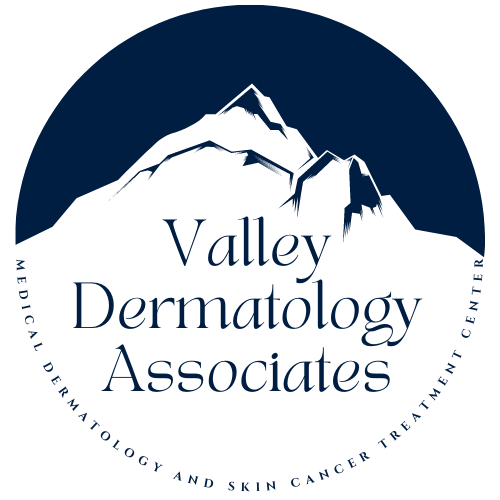Medical Service
Psoriasis
Psoriasis affects more than 3% of the US adult population. That is more than 7.5 million US adults.
What is Psoriasis?
Psoriatic disease doesn’t just affect the skin. You can have psoriasis on your skin, and can also develop psoriatic arthritis.
Psoriasis is classified as an immune-mediated disease, meaning it is characterized by inflammation caused by dysfunction of the immune system. On the skin, psoriasis causes skin cells to build up and create patches. These are visible signs of inflammation inside the immune system that show up on your skin.
When someone experiences both psoriatic arthritis and psoriasis, it is often called psoriatic disease. Psoriatic arthritis is an inflammatory type of arthritis that eventually occurs in 10% to 20% of people with psoriasis. One of our board-certified dermatologists is more than prepared to treat your psoriasis.
What are the causes of psoriasis?
Although the cause of psoriasis isn’t fully understood, it is thought to be a result of the immune system causing skin cells to grow faster than usual, causing buildup. Healthy skin cells grow and shed, or fall off, every month. When someone has psoriasis, their skin cells grow and shed faster, causing excess buildup. Another cause related to the immune system is when infection-fighting cells attack healthy skin cells by mistake.
Someone can be predisposed to the disease, but an environmental or medical trigger can only bring theirs on. Some of these include infections, cold weather, smoking, alcohol, or injury to the skin.
While the cause is still undiscovered, family history could be one of the risk factors for psoriasis. Having one parent with psoriasis increases your risk of getting the disease and having two increases the risk even more. Smoking tobacco increases the risk of getting the disease and also increases its severity if you do develop it.
What are the symptoms of psoriasis?
Psoriasis has similar symptoms to conditions like eczema and dermatitis. On the skin, the condition looks more scaley. When someone has the most common type of psoriasis, called plaque psoriasis, the extra skin cells form dry, scaly patches. A board-certified dermatologist instead of a primary care physician will understand the difference between eczema, dermatitis, and psoriasis. If you notice any of the below symptoms, visit one of our doctors to receive a proper diagnosis and start a custom treatment plan.
The following may appear on your elbows, knees, scalp, lower back, face, palms, and soles of feet, but can affect other places (fingernails, toenails, and mouth):
Patches of thick, discolored skin, raised plaques, and silvery scales
Dry, cracked skin that may bleed
Cyclical rashes that flare up for a few weeks at a time then subside
Itching, burning or stinging on affected areas
What does life with psoriasis look like, and how is it treated?
Psoriasis is a chronic condition, and treatment mostly serves the purpose of symptom management. The physical symptoms can breed insecurity, and it can make those who have it feel like hiding. Treatment plans should help the patient manage stress, stay comfortable and moisturized, minimize itching and burning, and ease swollen joints if you also have psoriatic arthritis. Treatments for psoriasis depend on how much skin is affected and much pain there is. Some treatments include creams and ointments applied to the affected areas, as well as ultraviolet light therapy. The treatment of psoriatic arthritis usually involves the use of drugs (such as methotrexate).
What are the complications of psoriasis?
Those who have psoriasis are at an increased risk of developing other diseases, such as:
- Other autoimmune diseases like celiac disease, sclerosis, and Crohn’s disease
- Mental health issues, including depression and anxiety
- Eye conditions like conjunctivitis
- Obesity
- Type 2 diabetes
- High blood pressure
- Cardiovascular disease
If you’re experiencing any of these symptoms, consult with our board-certified dermatologists to gain answers and relief!
Office
3911 Castlevale Rd, Suite 301
Yakima, Washington 98902
Phone
(509) 966 7899
Monday – Thursday:
7:45am – 12:30pm and
1:30p – 5:45p
